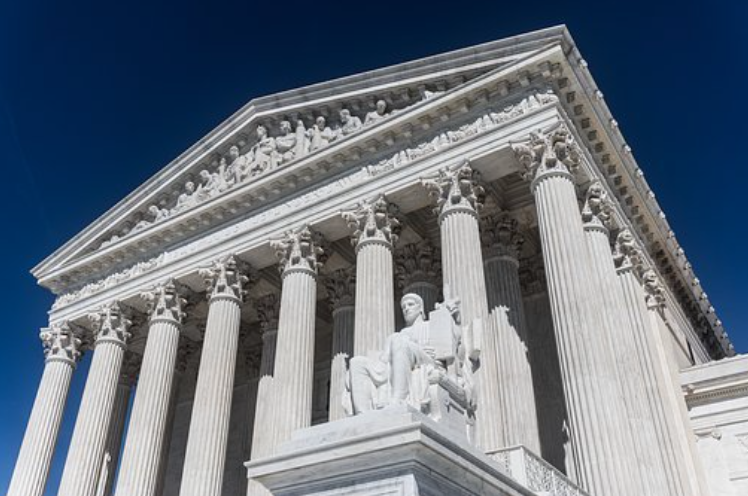Writing for a split, 6-3 majority, Justice Samuel Alito suggested that a violation of a suspect’s Miranda rights are not necessarily a violation of their constitutional rights, too.
The United States Supreme Court has issued a ruling that will prevent American law enforcement agencies from civil reprisals if they fail to inform criminal suspects of their Miranda rights.
According to Reuters, the split 6-3 decision favored Los Angeles County Deputy Sheriff Carlos Vega, who had appealed a lower court decision in a lawsuit filed by a hospital employee named Terence Tekoh.
Tekoh had earlier accused Vega of violating his Fifth Amendment rights against self-incrimination.
Reuters reports that Tekoh had been charged with sexually assaulting a hospital patient after Vega obtained a written confession.
However, Tekoh claimed that Vega had never provided a so-called Miranda warning, which advises criminal suspects that they have a right to remain silent and have an attorney present during any interrogations.

The federal Department of Justice lent its support to Vega in the appeal.
The Supreme Court’s ruling resolved a conflict as to the in-court use of any statements extracted from suspects who have not been provided a Miranda warning can be used to file a civil lawsuit against the investigator officer.
These lawsuits, say Reuters, could be filed under a federal law that lets ordinary people sue government officials accused of violating their constitutional rights.
Vega, adds Reuters, investigated a 2014 complaint that Tekoh had inappropriately touched a hospital patient who was physically incapacitated and bedridden.
Vega claims that Tekoh voluntarily provided a written confession—a claim that Tekoh contested, alleging that the deputy sheriff had coerced him into providing a statement.
After Tekoh filed his lawsuit, a San Francisco-based panel of the 9th U.S. Circuit Court of Appeals found that Vega’s alleged failure to provide a Miranda warning violated Tekoh’s Fifth Amendment rights, and that the officer could therefore be sued in civil court.
However, the Supreme Court overturned the 9th Circuit Court’s ruling, finding that a violation of a suspect’s Miranda rights does not necessarily constitute a violation of their Fifth Amendment rights.
“Miranda rests on a pragmatic judgment about what is needed to stop the violation at trial of the Fifth Amendment right against compelled self-incrimination,” Justice Samuel Alito wrote in the majority opinion. “That prophylactic purpose is served by the suppression at trial of statements obtained in violation of Miranda.”
“Allowing the victim of a Miranda violation to sue a police officer for damages under Section 1983 would have little additional deterrent value, and permitting such claims would cause many problems,” Alito added.
In an impassioned dissent, Justice Elena Kagan wrote that the Supreme Court had earlier established Miranda as a practical constitutional right.
Precedent, said Kagan, should have ensured that any government official violating the Miranda provisions be subject to lawsuits under Section 1983.
“Today,” Kagan wrote, “the court strips individuals of the ability to seek a remedy for violations of the right recognized in Miranda. The majority observes that defendants may still seek ‘the suppression at trial of statements obtained’ in violation of Miranda’s procedures.”
“But sometimes,” Kagan continued, “such a statement will not be suppressed. And sometimes, as a result, a defendant will be wrongly convicted and spend years in prison. He may succeed, on appeal or in habeas, in getting the conviction reversed. But then, what remedy does he have for all the harm he has suffered?”
Sources
Police Officers Can’t Be Sued for Miranda Violations, Supreme Court Rules


Join the conversation!